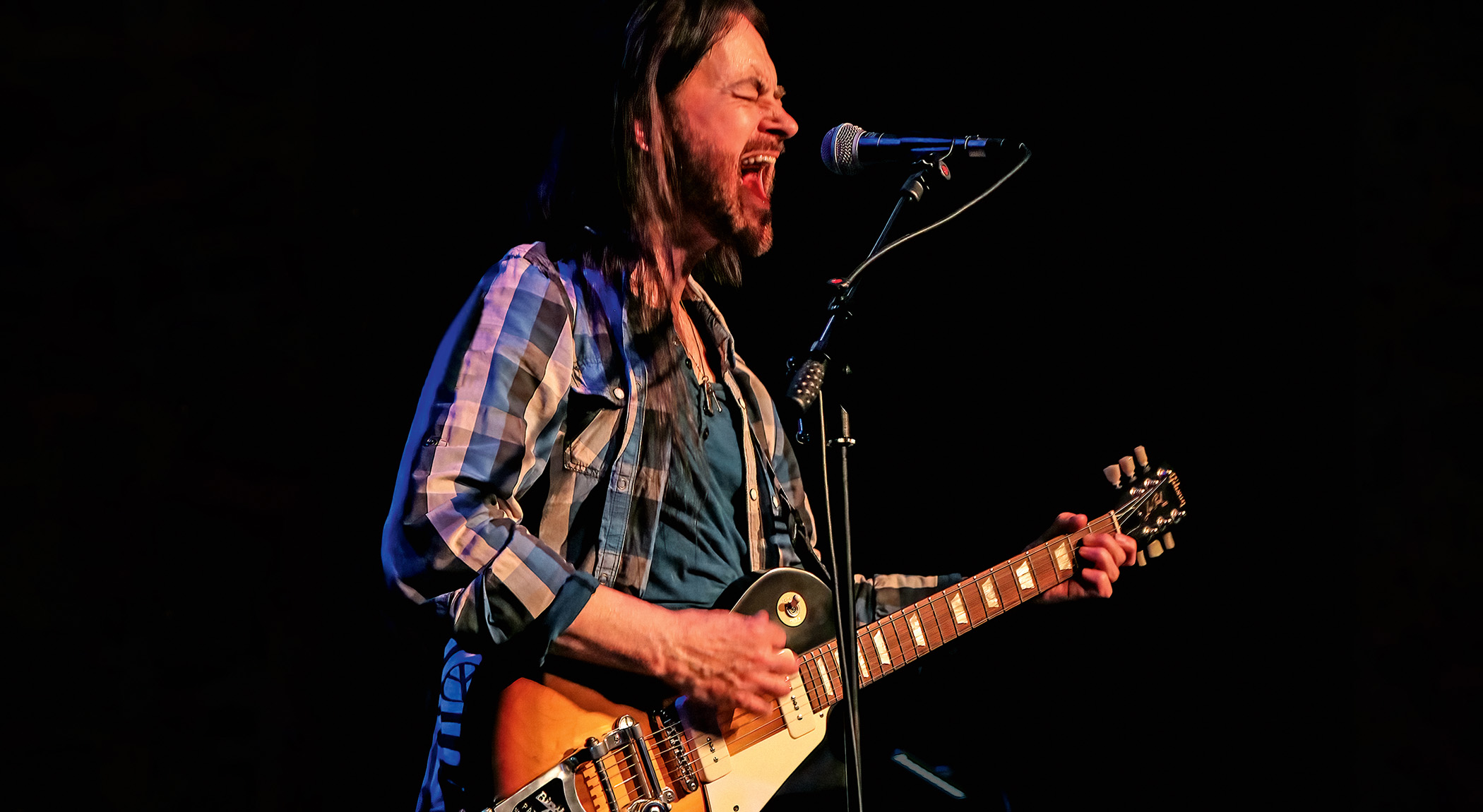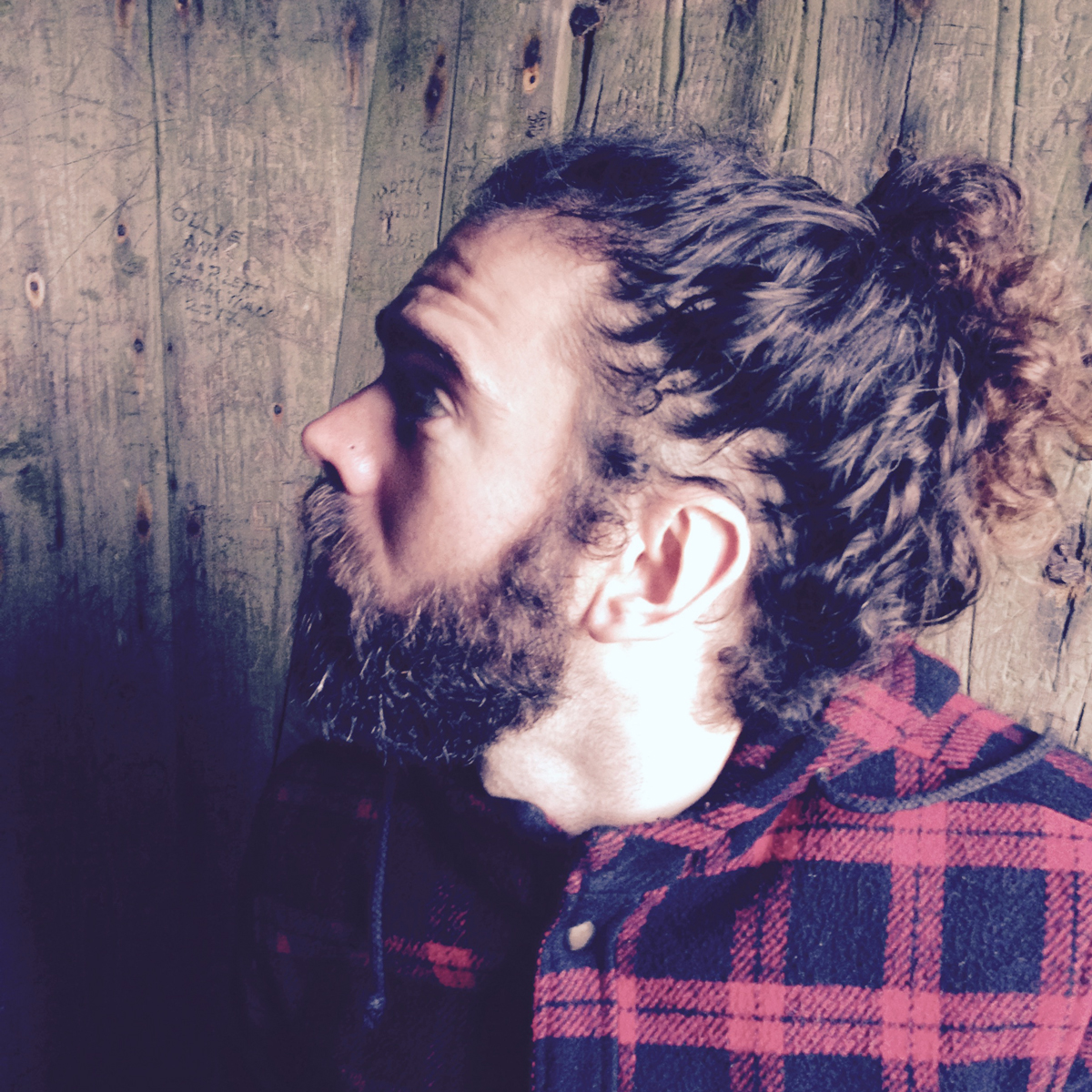“Loads of guitarists could knock spots off Neil Young, but he’s aware of his limitations and hasn’t spent his energy perfecting his technique. I’ve carried that forward”: Meet Steve Logan, the singer-songwriter putting a distinctly Welsh spin on Americana
Inspired by the unworked genius of Neil Young and the angst of the Manic Street Preachers, Logan’s new album, Psych Ward, is all about expansion and connection

Cardiff-based singer, songwriter and guitarist Steve Logan makes intricate music that blends folk, Americana, blues and rock, sometimes with an acoustic edge and sometimes in an all-out rock style.
Psych Ward leans on a more energetic sound, particularly on songs like the terrific Jesus Is My Vaccine, inviting comparisons to bands such as the Manic Street Preachers.
“I wanted to blend everything I had done before,” Steve explains. “So British blues-rock, West Coast Americana and this Welsh post-punk, indie pop-rock. I wanted to try to put all of that stuff together.”
Writing Politics
The album’s multiple styles come together with an emphasis on strong writing, often with a political bent, much like the Manics.
“People tend to realise my favourite band is the Manic Street Preachers,” Steve says. “I’ve followed them for a long time and I grew up near them. Lots of the songs are about political things. Jesus Is My Vaccine came out of reading an article about a Trump rally and the banners people were putting up at the time.
“On this album there is certainly a strong focus on the lyrical content. I wanted the lyrics to be important. But you have to be careful, otherwise people can say that it’s just setting poetry to music, which it isn’t.”
Louder Than Words
“For a long time I was in a touring tribute band to Free and Bad Company,” Steve says. “I founded and fronted that band, and what I learned from singing Free songs was that the words were often quite simple but they released a passion and energy in the singer.
Get The Pick Newsletter
All the latest guitar news, interviews, lessons, reviews, deals and more, direct to your inbox!
“And that’s what the audience keys into because they often can’t hear the words. I think of lyrics and music as being aspects of each other and they make one thing.”
Beyond Compare
As a discerning musician, it’s no revelation that Steve is as thoughtful with his guitar sound as he is his lyrics.
“The acoustic was the focus of my attention for a long time,” he tells us. “When I started playing electric I went through the usual difficult transition people have when they do it that way round. I remember realising that you didn’t have to play full chords or stay at one end of the neck. Eventually, I started to develop a more blues‑based, pentatonic style of playing, which you can hear on this album.”
But Steve states that he is still primarily about passion: “Because I’ve studied Neil Young, I’m aware that there are loads of guitarists that could knock spots off of him, but I’m also aware that he’s often referred to – by very technically adroit players – as a benchmark of a particular style because he’s aware of his limitations and hasn’t spent his energy trying to perfect his technique. I think I’ve carried that forward.”
Walking the Tightrope
When it comes to playing live, Steve likes to alternate between acoustic and electric.
“I was once listening to a bootleg of Neil Young playing at The Bitter End [in New York],” he says. “It was a solo acoustic album and I was listening to it in the dark and being completely absorbed. I feel that when you do the acoustic stuff, you’re drawing listeners into a sort of communion with yourself that is ideally profound.
“With the electric sets, the dynamic range is wider. The opportunity to focus on lyrics is restricted, but the opportunity to focus on guitars is increased. In the electric sets, there’ll be long solos and band interactions. I know audiences enjoy that kind of tightrope walking.”
- Psych Ward is out now on Flip-Flop.
Glenn Kimpton is a freelance writer based in the west of England. His interest in English folk music came through players like Chris Wood and Martin Carthy, who also steered him towards alternate guitar tunings. From there, the solo acoustic instrumental genre, sometimes called American Primitive, became more important, with guitarists like Jack Rose, Glenn Jones and Robbie Basho eventually giving way to more contemporary players like William Tyler and Nick Jonah Davis. Most recently, Glenn has focused on a more improvised and experimental side to solo acoustic playing, both through his writing and his own music, with players like Bill Orcutt and Tashi Dorji being particularly significant.
You must confirm your public display name before commenting
Please logout and then login again, you will then be prompted to enter your display name.





![[from left] George Harrison with his Gretsch Country Gentleman, Norman Harris of Norman's Rare Guitars holds a gold-top Les Paul, John Fogerty with his legendary 1969 Rickenbacker](https://cdn.mos.cms.futurecdn.net/TuH3nuhn9etqjdn5sy4ntW.jpg)







